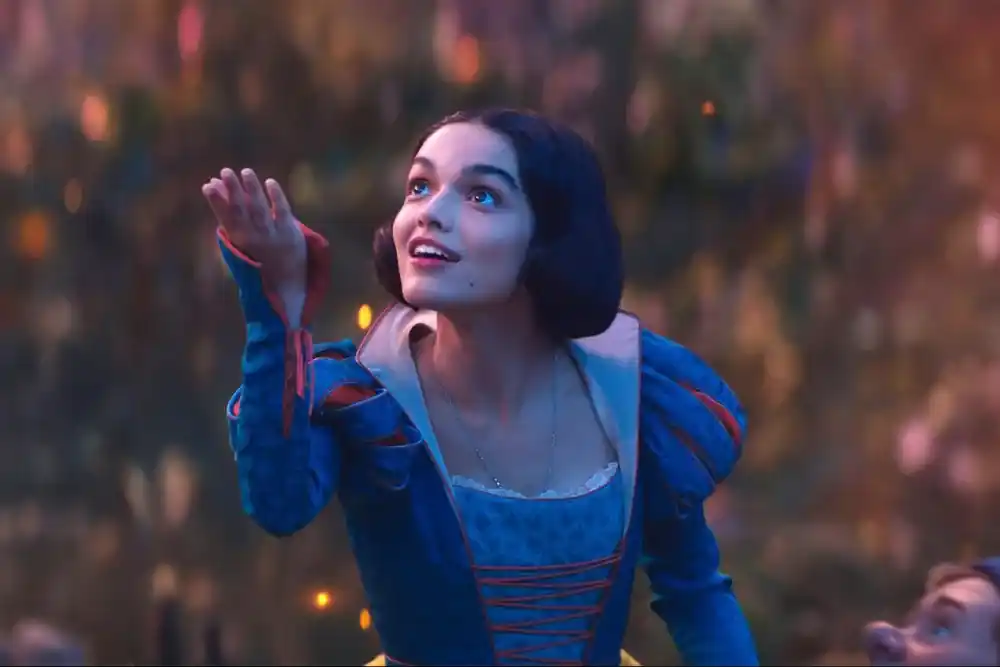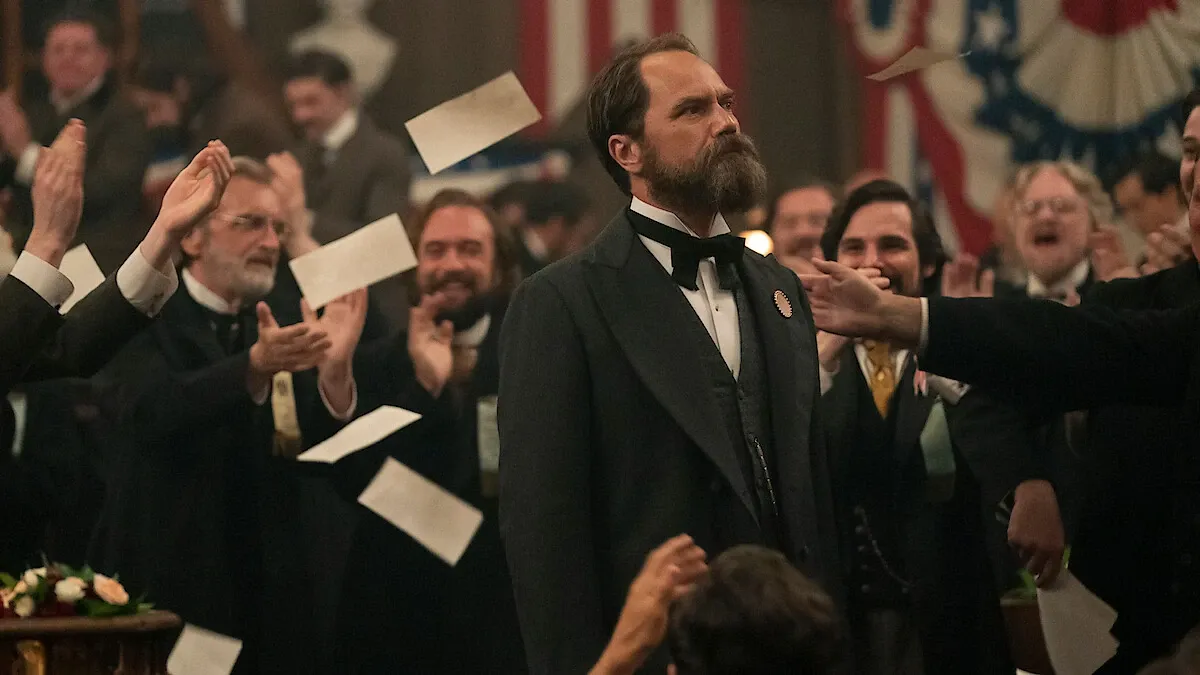Snow White isn’t for me, but I can’t imagine who, apart from shareholders, it’s for.
It’s neither reinvention nor remake. Instead, it references the 1937 classic at every turn and clumsily adjusts certain aspects as if the executives were in the room with us. This is a film that tries very hard to not take risks or even acknowledge that risks exist. The result is a hodgepodge of awful CGI, contrived new songs, and a story full of plot and lacking in substance.
The story is the same as in the original until it isn’t. Snow White is a kind and just girl, who grows into a kind and just woman. Her stepmother, Gal Gadot, is evil. But more than that, she’s obsessed with being prettier than Snow White. One day, her magic mirror tells Gadot that Snow White is now prettier than her. To remove any competition, Gadot has The Huntsman take Snow White into the woods and kill her.
Why? Because that’s what happened in the original. In the remake, it’s entirely uncertain, as a pointlessly long backstory establishes that Gadot rules the entire kingdom and nobody even knows that Snow White exists anymore.
Yes, I hear you. It’s silly to nitpick fairytales. But the movie brings it on itself. It has no faith in the timeless original story, so it spins a dozen or so webs around it to appear busier than it actually is. The result adds more questions than it does answers, and none of them are as impressive as what we’ve had for almost 100 years.
Was the original perfect? Goodness, no, and time hasn’t been gracious to some of its dated notions. I’m all for updating things as we progress as a society. But please, for the love of all that’s holy, let it not be as clunky as it is here.
Snow White joins up with a band of outlaws who fight against Gadot in the name of the old King — Snow White’s father. How they do so is a mystery, as the film doesn’t seem to care about it. There’s talk of good men doing nothing and as such contributing to the evils of systemic cruelty. But that, too, falls by the wayside as Snow White reminds everyone that they once had real jobs that didn’t involve fascism.
Watching this moment play out, I made a note wondering how these men would be welcomed back to the village where everyone knows who they are and what they’ve done. After all, the film establishes that people are starving and disappearing under the current regime. Their tribunal is a musical number I would have loved to see.
It’s thanks to Rachel Zegler that any of this works, even if it’s only a little bit. She’s luminous as Snow White, effortlessly channeling the ephemeral idea of a Disney princess to the screen. Even when she’s the only real thing in the picture, Zegler helps us believe that what we’re seeing has weight and warmth. It is as impressive of a magic trick as anything you’ll see on the big screen this year. Without Zegler, there is no film, it’s that simple.
If only the villain of the piece was as interesting, but the only thing Gal Gadot achieves is proving she’s a worse singer than she is an actress. This is the kind of flat performance that drains the life from even the most outrageous sequence. It’s not campy enough to be fun. Instead, we dread Gadot’s arrival not because she’s an effective villain, but because the film stops dead whenever she’s on screen.
I wish Snow White were a better and more interesting movie, I really do. But this isn’t a film made with the intent to say anything new. It isn’t even a celebration of something old. This is a product with a capital P, and you can feel every moment that has gone through the corporate ringer. Its results are maddening, from the CGI dwarves to the real-life actor with dwarfism playing against them. Every decision feels like a marketing meeting which, in turn, makes everything sterile and inhuman.
For a film about the inner beauty of it all, there’s very little of it to be found here.













